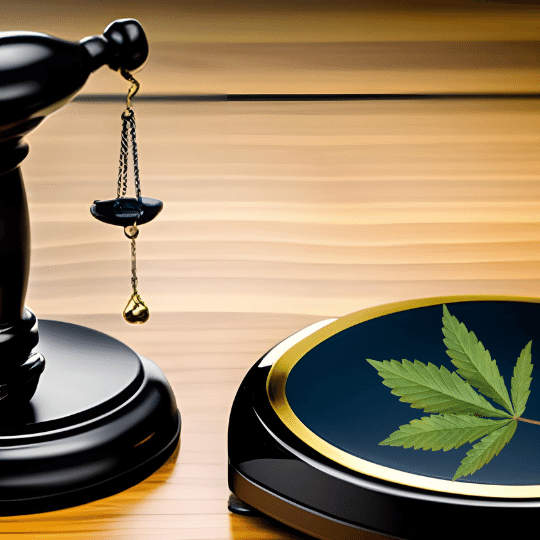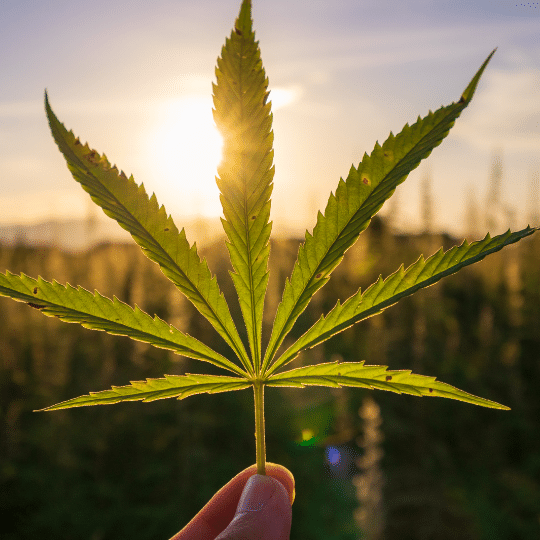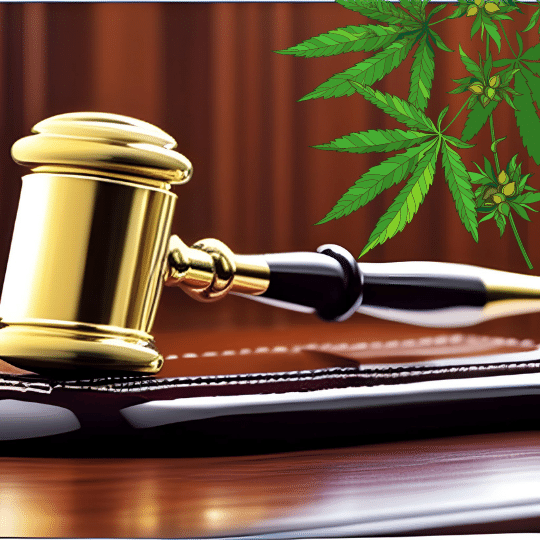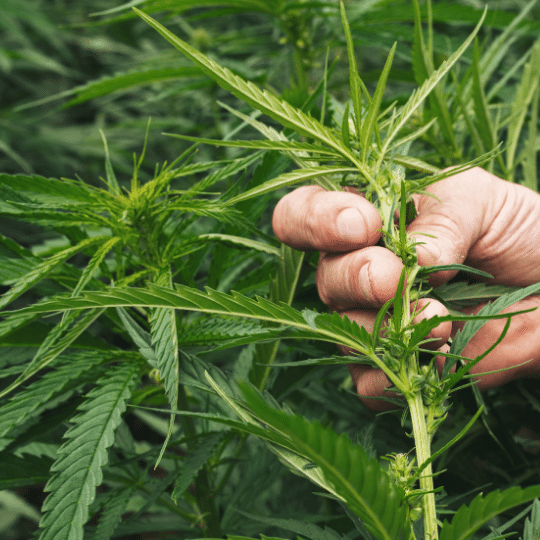
Why is Delta 8 Legal? We have the buzz for you.
Amid the twists and turns, there's one question that keeps cropping up: Why is Delta 8 THC legally allowed in many parts of the United States? The narrative surrounding Delta 8 THC, or delta-8-tetrahydrocannabinol to give it its full name, is a saga of laws, chemistry, and plenty of debates. Understanding the reason behind the legality of Delta 8 THC often feels like navigating a complicated maze with no end. As with many components of cannabis, the law can be a bit murky. But let's break it down, shall we?
Understanding Delta 8
Residing within the complex universe of cannabis compounds, Delta 8 THC holds a fascinating place. It is chemically akin to Delta 9 THC, the superstar compound of cannabis responsible for its psychoactive effects. But while Delta 9 THC often finds itself under the legal spotlight, Delta 8 THC treads a different path.
It's like having a pair of identical twins where one is constantly making headlines, and the other is legally low-profile. The dichotomy is perplexing, to say the least. The irony? It has more to do with policy nuances and historical context than with hard science. But don't just take my word for it. Let's journey through the nitty-gritty and see how Delta 8 THC has maneuvered the legal landscapes.
Looking for dosage recommendations for Delta 8? Check out this Delta 8 dosage guide.

The Legal Landscape: A Muddy Waters
Here's where things get interesting. In 2018, the United States government passed the Farm Bill, a transformative piece of legislation that legalized the production and sale of hemp and its derivatives. Now, hemp is cannabis that contains 0.3% or less Delta 9 THC, and the derivatives mentioned in the bill are those derived directly from hemp. This means that technically, Delta 8 derived from hemp falls within the boundaries of legality.
However, it's not as cut and dry as it seems. The legality of Delta 8 varies across states, with some permitting its sale while others have banned it entirely. It's a classic case of reading the fine print, folks.
Check out this article comparing Delta 8 to marijuana.
The Chemistry Behind Delta 8's Legality
The world of chemistry is a marvel, where molecules dance, elements bond, and fantastic reactions take place. The production of Delta 8 THC is one such marvel that cleverly exploits legal loopholes.
In the natural state of the cannabis plant, Delta 8 THC is produced in minuscule amounts. Instead, it's often manufactured from other cannabinoids through a series of chemical reactions, with CBD (cannabidiol) or Delta 9 THC being the usual starting points.
Let's embark on a chemistry crash course, shall we? Here's how the transformation from CBD to Delta 8 THC typically occurs. First, CBD undergoes a process called isomerization, where it's treated with a solution of a compound such as acidic alumina. This treatment changes the structure of CBD, and voilà, we have Delta 8 THC! The whole process might sound like a high school chemistry experiment, but it requires precise scientific knowledge and equipment.
Now, enter the legal loophole: the 2018 Farm Bill, which made the production of hemp and its derivatives legal in the U.S, as long as the Delta 9 THC content is less than 0.3%. While the bill doesn't specifically mention Delta 8 THC, it does allow all hemp derivatives, which technically includes Delta 8. If the Delta 8 is derived from CBD that comes from legal hemp, then it, too, can fall within the scope of the law.
This clever sidestepping of regulations has led to a surge in the production and sale of Delta 8 THC, much to the surprise (and perhaps chagrin) of lawmakers who drafted the Farm Bill. The law inadvertently created an environment for this less-known cannabinoid to thrive, paving the way for a new market that was quick to bloom.
So, in essence, the legality of Delta 8 THC owes its existence to a mixture of chemical wizardry and crafty interpretation of existing cannabis legislation. And that, folks, is a prime example of science meeting policy in an unexpected dance.
Want to learn more about What Is Delta 8? Start here.

Controversies and Future Outlook
Like a teen who's just got his driver's license, the Delta 8 market is moving fast, with safety concerns nipping at its heels. Though it's less potent than Delta 9, Delta 8 does produce a high and could potentially come with similar risks and side effects.
Looking forward, it's hard to say if the laws surrounding Delta 8 will change. Will it be embraced fully, or will regulation tighten the noose? Only time can spill the beans.
Navigating the Delta 8 Marketplace
In the current climate, it's crucial to be informed before you dive into the Delta 8 market. Always verify the source of your Delta 8 and ensure it's derived from legal hemp. And remember, just because it's legal doesn't mean it's safe – always use responsibly, folks. All of our Delta 8 products here at EH Delta are third party tested by reputable labs to show you the pureness and potency of our products.
Here are a few common misconceptions of Delta 8 THC
- Delta 8 THC Doesn't Get You High.
- Truth: While Delta 8 THC is less potent than Delta 9 THC, it does still have psychoactive effects. Its high is often described as clear-headed and mellow, without the anxiety that some experience with Delta 9.
- Delta 8 THC is Completely Legal.
- Truth: The legality of Delta 8 THC is a complex issue. While federally it may be legal under certain conditions due to the 2018 Farm Bill, various states have individual laws banning or restricting it.
- Delta 8 THC is Synthetic.
- Truth: Although most commercially available Delta 8 THC is produced in a lab due to its scarce presence in cannabis plants, it is not synthetic. It's a naturally occurring compound that is chemically converted from other cannabinoids.
- Delta 8 THC is the Same as CBD.
- Truth: While both are cannabinoids found in the cannabis plant, they have very different effects. CBD is non-psychoactive and is primarily used for its potential health and wellness benefits, while Delta 8 THC can produce a high.
- All Delta 8 THC Products are Safe.
- Truth: Due to the current lack of regulation in the industry, product safety can vary widely. It's important to purchase from reputable sources that provide transparency in their ingredients and manufacturing process.

Final Reflections on the Legal Status of Delta 8
The legal status of Delta 8 is, in short, a product of complex laws and chemical loopholes. It's a fascinating insight into the intersection of science, politics, and legislation in the evolving cannabis landscape. So, tread lightly, stay informed, and remember - it's always 4:20 somewhere!
